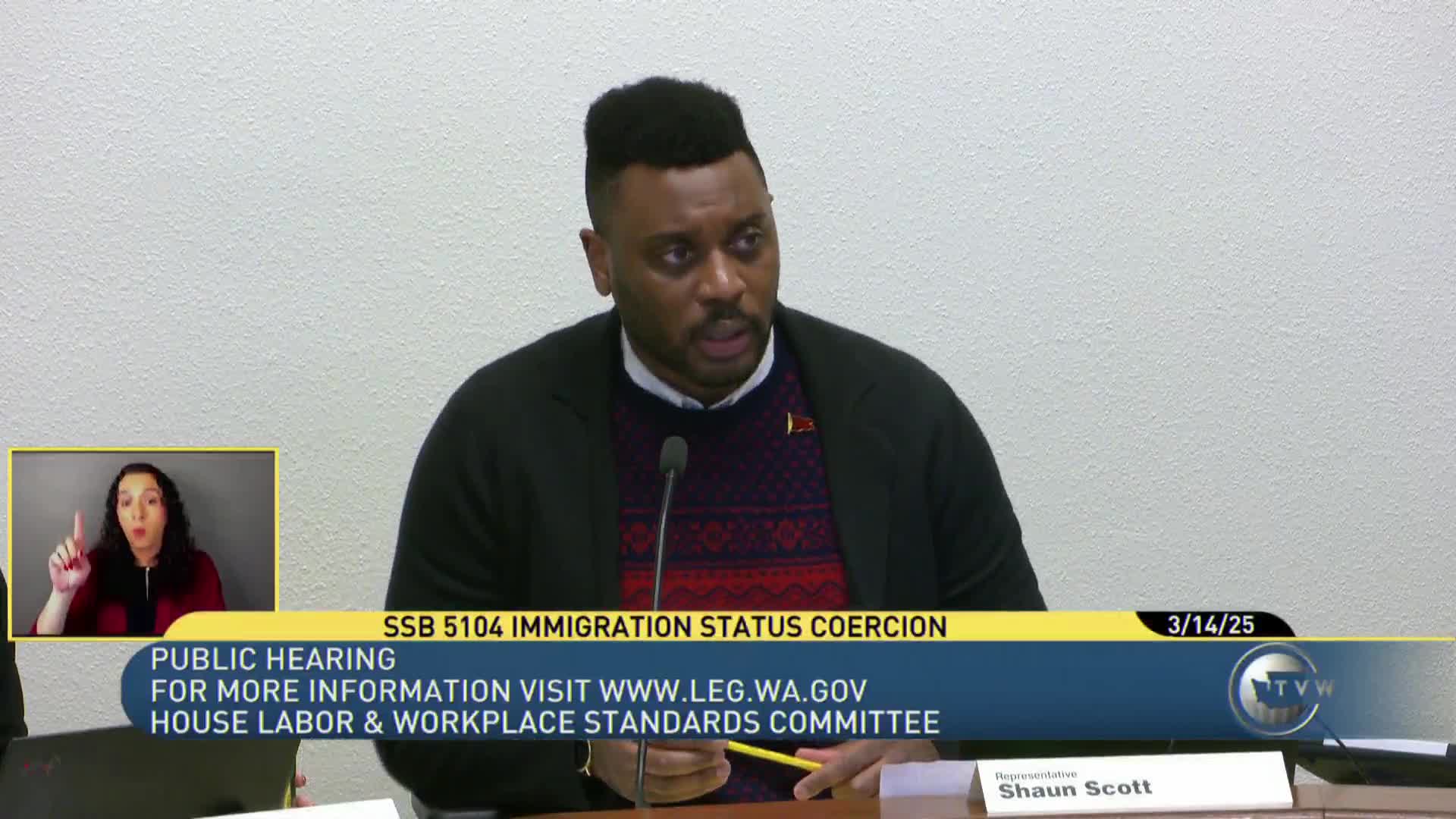Committee hears bill to ban employer coercion based on immigration status and add penalties
Get AI-powered insights, summaries, and transcripts
Subscribe
Summary
The Labor & Workplace Standards Committee heard testimony for substitute Senate Bill 5104, which would make coercion tied to an employee’s or family member’s immigration status a punishable labor violation enforceable by the Department of Labor & Industries (L&I) with tiered monetary penalties.
At the Labor & Workplace Standards Committee hearing Friday, March 14, members heard testimony on substitute Senate Bill 5104, a measure to prohibit employers from coercing employees by threatening or referencing immigration status to deter protected workplace actions.
The bill would expand L&I’s enforcement tools to cover coercive acts and allow L&I to assess civil penalties of up to $1,000 for a first violation, $5,000 for a second violation, and $10,000 for subsequent violations, with the department required to assess the higher penalty if the conduct also violates existing anti-retaliation rules, a staff briefing said (Kelly Leonard, staff to the committee). The measure applies where coercion facilitates or furthers a violation of wage, hour, or related labor statutes.
Proponents, including students and clinicians from Seattle University’s Workers’ Rights Clinic and advocacy groups, told the committee they see coercion as a distinct problem that silences workers before they can file complaints. Angelo Tadros, a Seattle University law student, said, “This bill is important because it gives LNI a tool to hold accountable employers who coerce their employees based on their immigration status.” Yasmin Hamoud, another student testifier, described a hypothetical worker who was told on her first day she would be paid below minimum wage and warned the employer “had a friend in immigration” if she complained.
Senator Hasegawa, who brought the bill to the committee, said the proposal grew from work by the Seattle University Law Clinic and cited examples of employers withholding pay and threatening immigration enforcement; he also framed the policy as protecting workers and the state’s economic interests. Supporters from the Fair Work Center, Washington State Association for Justice, the Washington State Catholic Conference, and community witnesses described repeated patterns where employers used immigration threats to suppress wage and hour claims.
Committee members asked how L&I investigations would be initiated and how the law would reach workers who fear retaliation or exposure. Staff and witnesses said L&I investigations would generally be complaint‑driven; the bill would create a discrete civil penalty L&I could assess when it finds coercion in the course of its wage and hour enforcement work. Staff clarified the coercion penalty is only applied where an underlying labor-law violation is found.
Supporters urged that the penalty and enforcement authority would create a deterrent and make it easier for L&I to address conduct that currently falls outside retaliation statutes. Opposing testimony on this item was limited in the hearing record. The committee closed testimony on the bill after public comment and moved on to other agenda items.
The bill’s text and any later amendments will determine the scope of protected activity, procedural rules for L&I investigations, and whether additional outreach or confidentiality protections are added to encourage complaint filing.
